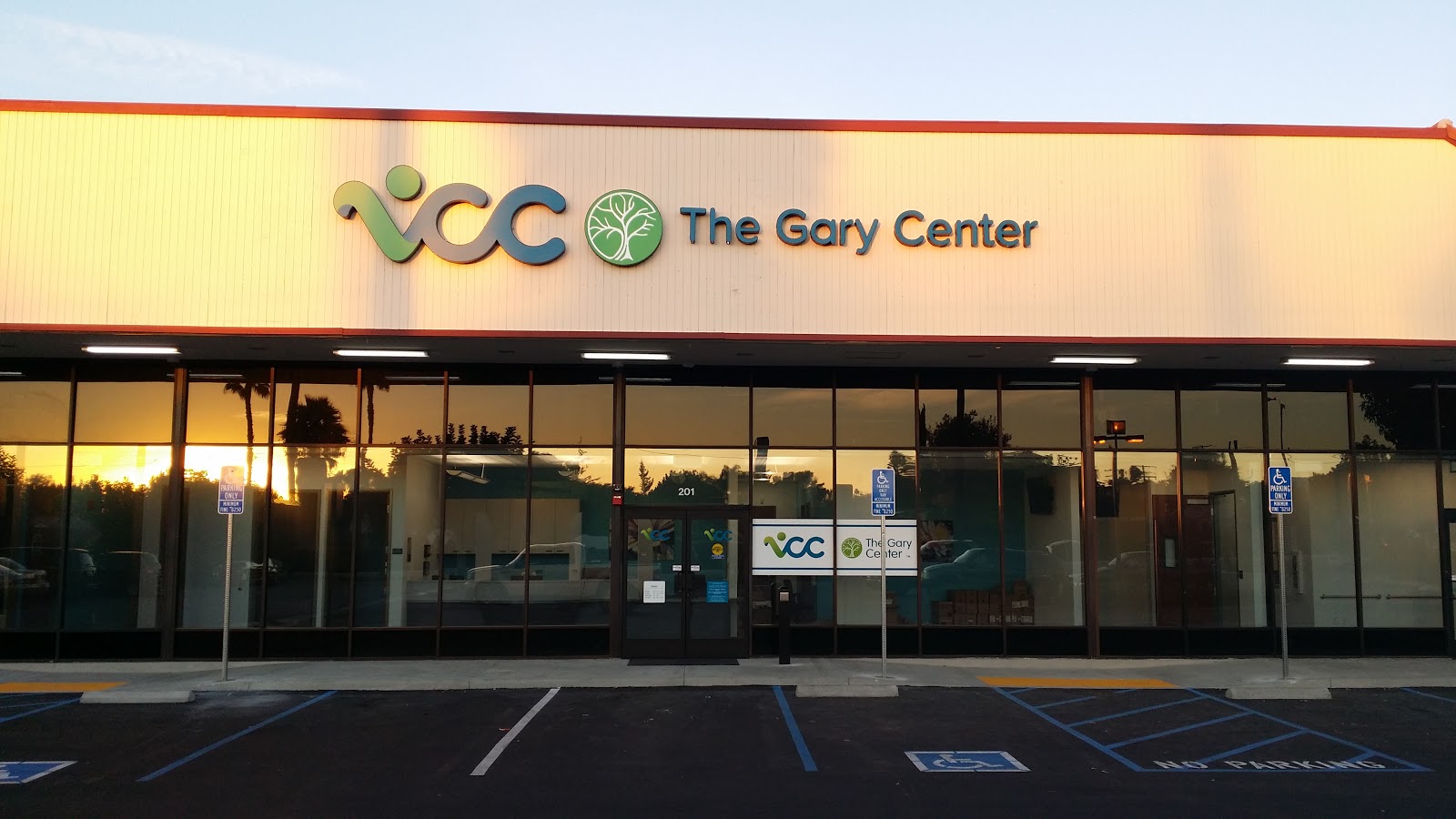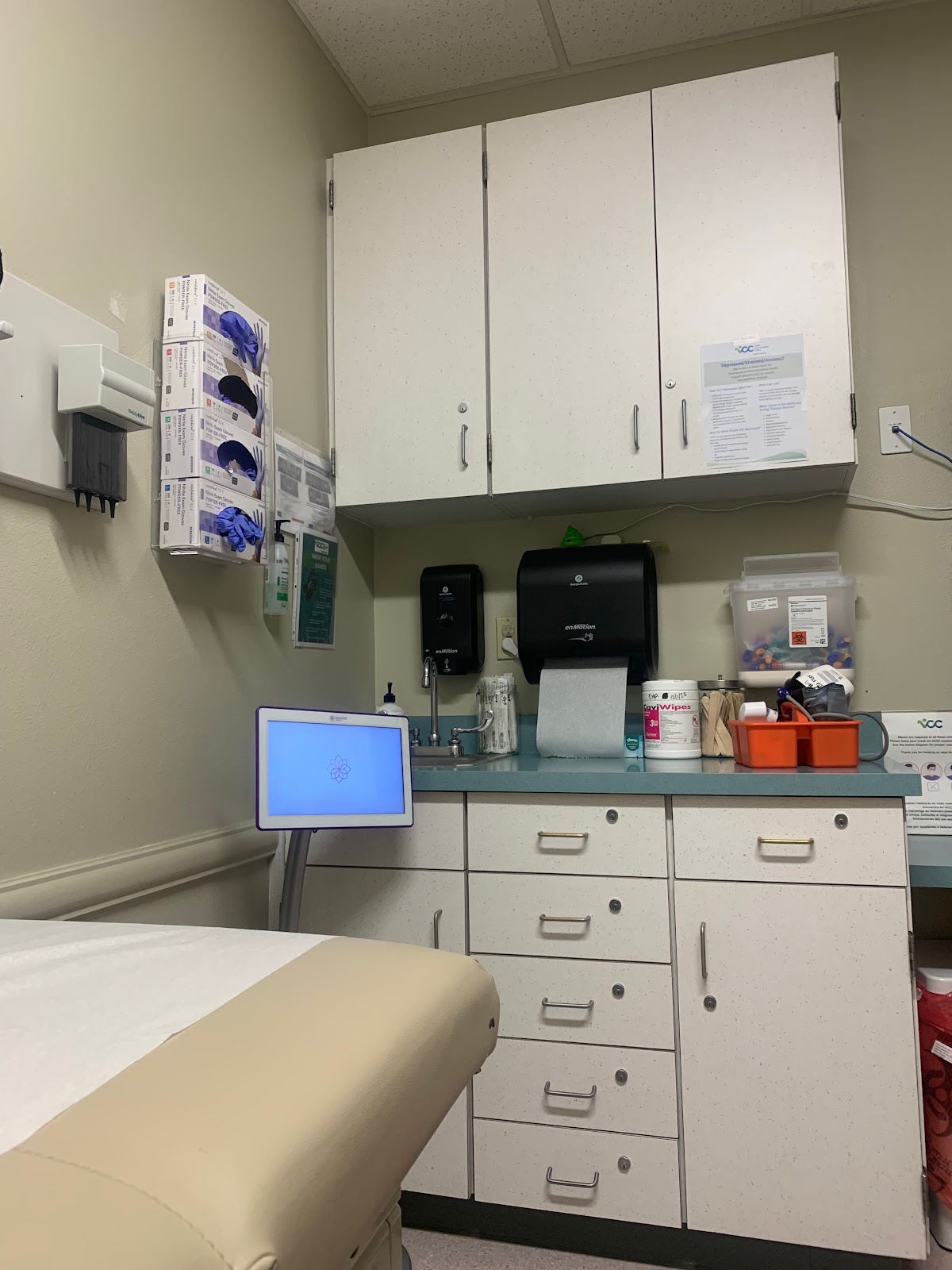VCC - Vista Community Clinic

Overview
VCC - Vista Community Clinic is a substance abuse treatment center for people seeking treatment near San Diego County. As part of their treatment modalities for recovery, VCC - Vista Community Clinic provides 12-step facilitation during treatment. VCC - Vista Community Clinic is located in Vista, California, accepting cash or self-payment for treatment.
VCC - Vista Community Clinic at a Glance
Payment Options
- Cash or self-payment
- State-financed health insurance plan other than Medicaid
- Sliding fee scale (fee is based on income and other factors)
- Medicaid
- Federal military insurance (e.g., TRICARE)
Assessments
- Comprehensive mental health assessment
- Comprehensive substance use assessment
Age Groups
- Children/adolescents
- Young adults
- Adults
Operation
- Private non-profit organization
Accreditations
State department of health:

Government agencies issue State Licenses, granting rehabilitation organizations permission to operate their businesses lawfully within specific geographic regions. The specific licenses needed for legal operation are typically determined by the type of rehabilitation program offered by the facility and its physical location.
Treatment At VCC - Vista Community Clinic

Conditions Treated
Mental health treatment:
Mental health treatment involves a range of therapeutic approaches, provided by licensed professionals, to address mental health challenges. It includes psychotherapy, medication, and holistic practices to help individuals manage conditions, improve coping skills, and enhance overall well-being. The goal is to empower individuals to lead fulfilling lives and reduce the stigma surrounding mental health.
Alcoholism:
Alcohol addiction is a condition where a person's brain gets used to having alcohol, making it hard for them to control their drinking. This can lead to feeling down, acting without thinking, wanting alcohol strongly, and feeling sick if they don't drink. To help with this, treatment programs are available. These usually include a guided process to safely stop drinking, talking with professionals to work through problems, and joining support groups with others facing similar issues. While these treatments can't fully cure the addiction, they provide tools and support to help individuals live a better life and keep their drinking under control.
Substance use treatment:
Substance use rehabilitation is a comprehensive treatment approach designed to assist individuals struggling with addiction to drugs or alcohol. This form of rehabilitation addresses both the physical dependency, often starting with detoxification, and the psychological triggers, using various therapeutic methods. The objective is to empower individuals to achieve and maintain sobriety, while equipping them with the tools and coping strategies needed to reintegrate into society and lead a substance-free life.
Co-occurring Disorders:
Dual-diagnosis rehabilitation centers focus on treating individuals with simultaneous mental health and substance use disorders. The intertwined nature of addiction and mental health issues can intensify each other's symptoms, complicating recovery. These centers provide a holistic treatment strategy addressing both conditions together, often encompassing thorough evaluations, a blend of therapeutic methods, family counseling, and post-treatment care.

Levels Of Care
Detoxification:
Detoxification, often called detox, is like a reset button for the body after someone has been using drugs or alcohol. Its main job is to help people who want to quit these substances by easing the discomfort they might feel when they stop. Think of it as a way to clean out the harmful stuff in the body when someone has been using drugs or alcohol too much. Detoxification aims to make the process of quitting safer and less painful for the person.
Aftercare:
Finishing a drug or alcohol rehab program is just the beginning of the recovery journey. Aftercare focuses on establishing a long-term recovery plan, which encompasses continuous support. This might involve options such as residing in sober living homes or halfway houses, receiving career guidance, and connecting the individual with community support groups like Alcoholics Anonymous (AA) or Narcotics Anonymous (NA).
Outpatient:
Outpatient treatment in a rehab center offers flexible therapy sessions, typically ranging from 1-3 hours per week, allowing individuals to continue daily activities while receiving care. In contrast, intensive outpatient programs demand a more rigorous commitment, often involving 9-15 hours weekly, providing a more immersive therapeutic environment without the need for inpatient stays.

Treatment Modalities
12-step facilitation:
Recovery models grounded in 12-step programs prominently incorporate peer coaching, strongly emphasizing personal growth as the pathway to enduring sobriety. Regular participation in 12-step meetings, known for their anonymity, cost-free access, and daily availability, is encouraged. The 12 steps of recovery, anchored in spiritual principles, guide participants in unraveling the core issues of their addiction, taking accountability for their decisions, and coming to terms with aspects beyond their control. Chosen by the individuals themselves, sponsors offer personalized one-on-one mentorship, aiding in navigating through the recovery journey.
Individual psychotherapy:
In individual therapy, a person engages in a one-on-one session with a qualified therapist or counselor. This therapeutic approach is crucial in successful substance abuse treatment because it delves into the underlying causes of addiction, addressing issues the individual may encounter in their familial, social, and professional or academic environments.
Group counseling:
Group Counseling is a therapeutic approach where individuals come together under the guidance of a trained counselor to share experiences, provide mutual support, and gain insights. It fosters a sense of community, promotes understanding through diverse perspectives, and offers personal growth and problem-solving strategies.
Family counseling:
Family counseling is a therapeutic approach that addresses the dynamics, interactions, and challenges within a family unit. Through guided discussions and interventions, a trained counselor helps family members understand one another, resolve conflicts, improve communication, and strengthen their bonds. This form of therapy can be beneficial for families facing transitions, stressors, or behavioral issues, promoting understanding and facilitating positive change in the familial environment.
Marital/couples counseling:
Whether a marriage or other committed relationship, an intimate partnership is one of the most important aspects of a person's life. Drug and alcohol addiction affects both members of a couple in deep and meaningful ways, as does rehab and recovery. Couples therapy and other couples-focused treatment programs are significant parts of exploring triggers of addiction, as well as learning how to build healthy patterns to support ongoing sobriety.
Life Skills:
Life skills training encompasses essential skills for individuals to navigate daily challenges successfully. This training includes time management, career guidance, money management, and effective communication, which are crucial for holistic addiction recovery. By mastering these skills, individuals are not only able to live substance-free but also thrive. Life skills training thus provides the practical tools for functional living in society, setting clients on a path toward lasting sobriety and success in life.
Cognitive Behavioral Therapy:
Cognitive Behavioral Therapy (CBT) is a widely practiced form of psychotherapy that seeks to address dysfunctional emotions, behaviors, and thoughts through a goal-oriented, systematic process. It encourages individuals to challenge distorted cognitions and change destructive patterns of behavior by promoting self-awareness and effective coping strategies. CBT is often used to treat a range of disorders including anxiety, depression, and stress, making it a versatile and practical therapeutic approach. Through enhancing an individual's capacity to manage life's challenges, CBT contributes to improved mental well-being and overall quality of life.
Dialectical Behavior Therapy:
Dialectical Behavior Therapy (DBT) for addiction treatment is a comprehensive cognitive-behavioral approach initially developed to treat individuals with borderline personality disorder. Adapted for addiction, DBT emphasizes the development of four core skills: mindfulness, emotion regulation, distress tolerance, and interpersonal effectiveness. Through individual and group sessions, patients learn to understand their triggers, manage negative emotions, cope with cravings, and improve relationships, all of which contribute to long-term recovery and reduced substance use.
Motivational Interviewing:
Motivational Interviewing (MI) is a client-centered counseling approach designed to enhance an individual's intrinsic motivation to change by exploring and resolving ambivalence. Through empathetic engagement and evoking personal reasons for change, MI helps individuals recognize the negative consequences of their substance use and empowers them to take steps toward recovery.
Trauma-related counseling:
Trauma therapy delves into past traumatic events that might be influencing a client's current life experiences. Often, trauma serves as a significant precipitant or underlying cause of addiction. Such traumas can arise from childhood sexual abuse, domestic violence, growing up with a mentally ill parent, early parental loss, and experiences of sexual assault in teen or adult years, among other circumstances. Trauma therapy aims to aid the individual in processing and navigating beyond these traumas, guided by the expertise and empathy of skilled mental health specialists.
Nicotine replacement:
Nicotine Replacement Therapy (NRT) is a medically-approved approach designed to help individuals quit smoking by providing a controlled dose of nicotine without the harmful chemicals found in cigarettes. Available in various forms, such as patches, gums, lozenges, and inhalers, NRT reduces withdrawal symptoms and cravings, making the transition to a smoke-free life more manageable.
Nutrition Therapy:
Nutrition Therapy offers a holistic approach to recovery by addressing the body's dietary needs. Tailored to each individual, this therapy ensures optimal nutrient intake to support healing, boost immunity, and promote overall well-being, complementing other rehabilitation efforts for a comprehensive recovery journey.
Ancillary Services
Languages
- Spanish
Special Programs
- Clients with HIV or AIDS
- Pregnant/postpartum women
- Clients who have experienced trauma

Additional Locations
Contact Information
DISCLAIMER: The facility name, logo and brand are the property and registered trademarks of VCC - Vista Community Clinic, and are being used for identification and informational purposes only. Use of these names, logos and brands shall not imply endorsement. BetterAddictionCare.com is not affiliated with or sponsored by VCC - Vista Community Clinic.



